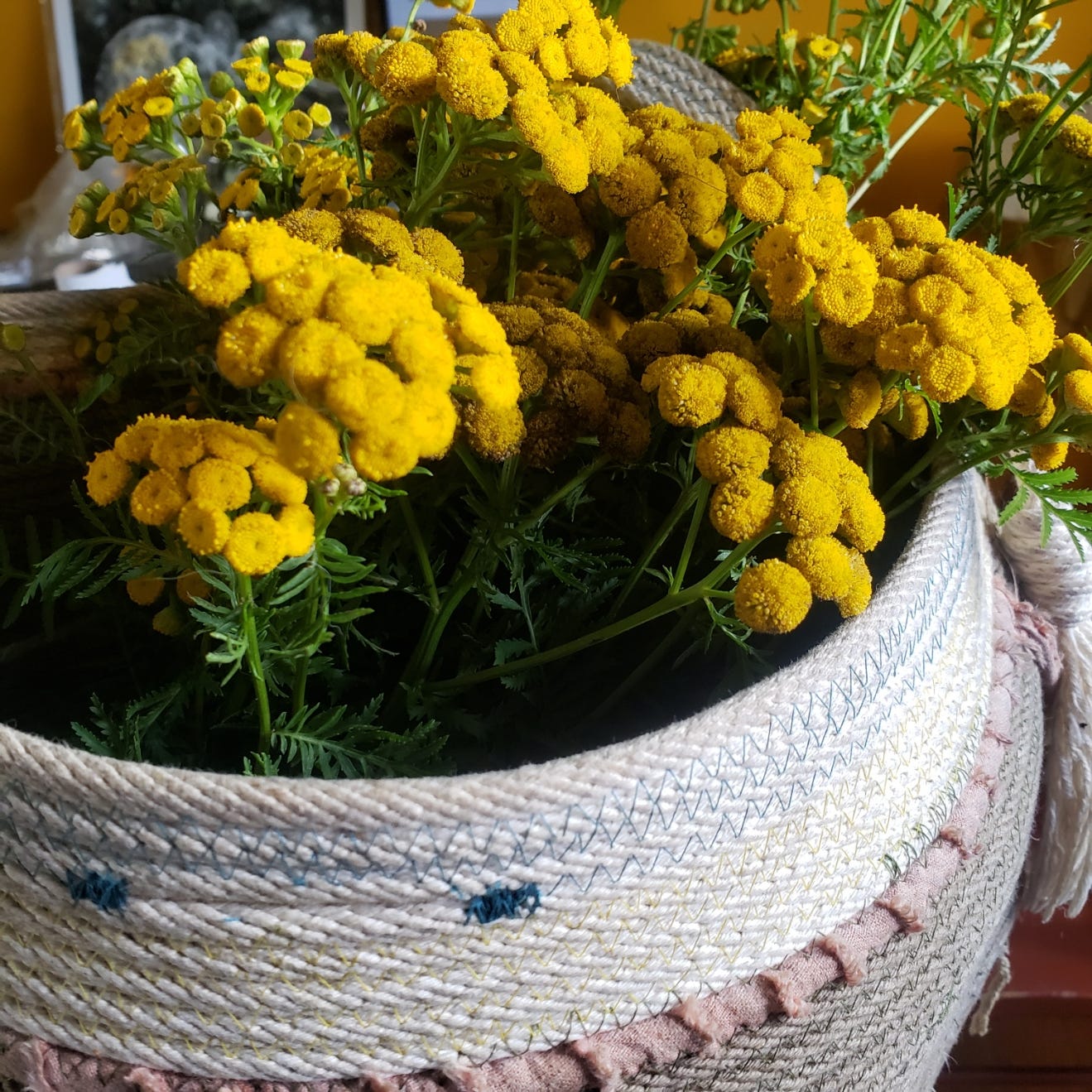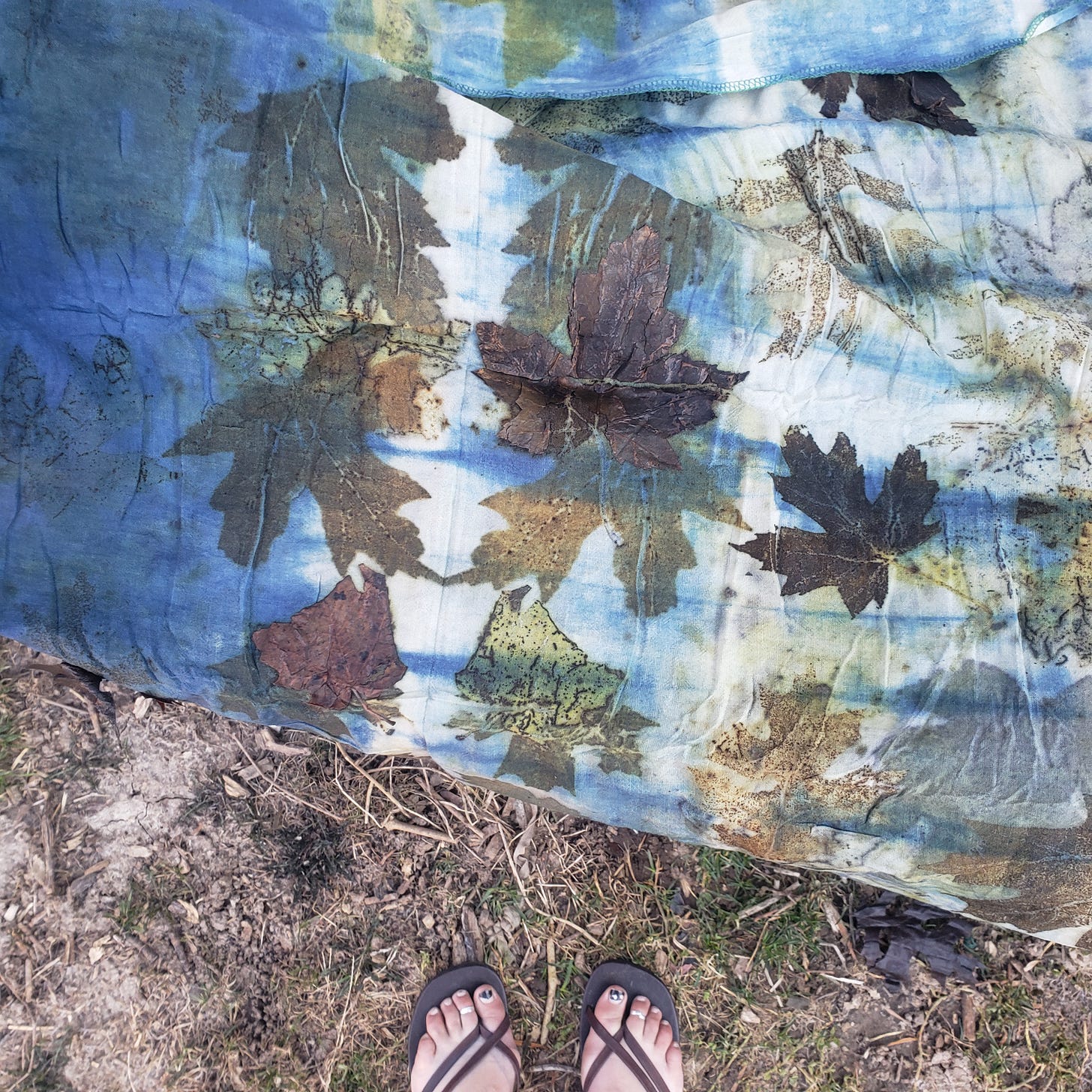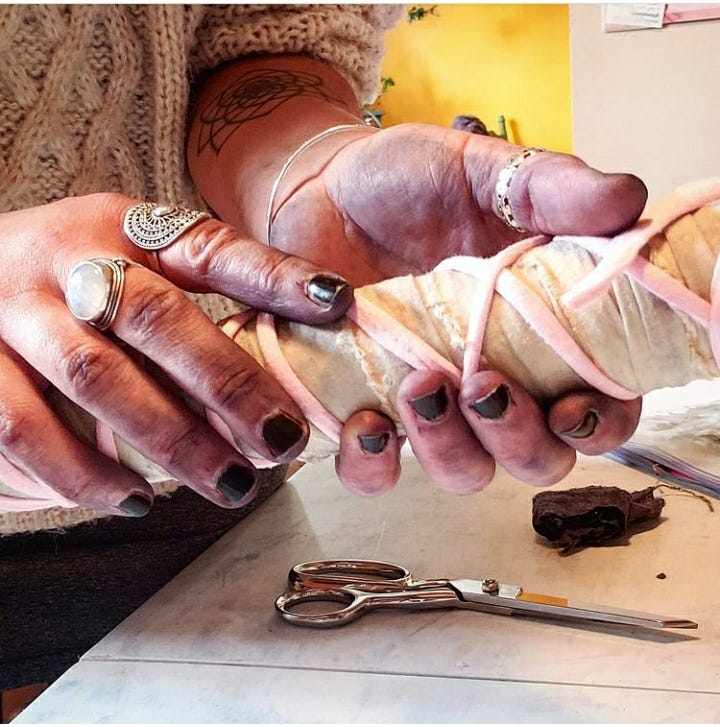Finding love in the imperfect & impermanent
thoughts on cloth
Ive always been drawn towards the messier side of life. I didn’t colour inside the lines, I doodled the page full. Imperfect little drawings to fill the empty white space. It makes perfect sense that I came to find my passion in dyeing cloth in such nonuniform ways! From digging in gardens, finding wild spaces to gather materials, plant dyes offer layers of stories, from the plant, to the cloth, to the hands of the maker, each imparting a tale to tell, allowing the textile to tell the tales of times gone by.
There is a rich history through all cultures of using plants to bring colour to cloth. With additions of metals to create stronger bonds and different shades. The desire for decorating our textiles, in my opinion is part of our human-ness.
(If you’re looking for a great resource on the historical uses of plants around the world and in differetn cultures ,check this book out : Natural Dyes: Sources, Traditions, Technology & Science by Dominique Cardon )
In our quest as a culture to find a way to make everything perfectly unison, and fast, we have created a massive textile industry that causes an immense amount of harm to the environment & the people stuck in that supply chain. The stories most of our new fast fashion textiles carry, is not one of love, but of pain and destruction. It hasn’t always been that way, and it doesnt have to continue that way. I believe it will take us falling in love with the imperfect & impermanent to move towards that change.
Heres a little list of some things we can do to support the shift back to slow textiles, cloth that share a story of love & resilience.
supporting small scale dyers and makers.
Shop second hand. learning to dye with plants, so you can dye over older cloth, learn to mend,
learning about the fibers used. where were they grown, processed. natural, synthetic.
Fall in love with the story behind the textiles you purchase. Share that story.
Remember that nothing is permanent. Natural dyes & fibers are living, they will shift over time. Find the beauty in change.
Become curious about the hands that were involved in the creating of your textiles.
and whose hands will be holding it years from now?
With curiosity, we learn, with awareness & knowledge, we can take steps towards ethical choices when it comes to the cloth we bring into our homes.
Thanks for being here sweet human!
xo Julia
if you know anyone who would appreciate my textile ramblings you can share this post here ( Im very thankful for the support! )




